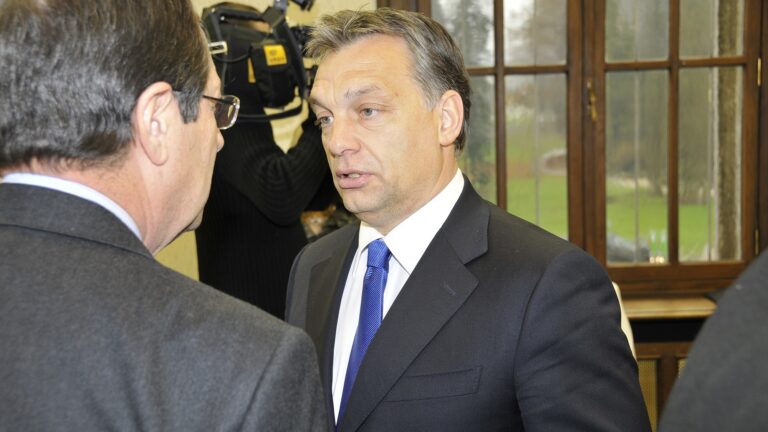The Rubicon Institute organized a large-scale conference on 23 September in Budapest, at the headquarters of Mathias Corvinus Collegium, focusing on the reawakening of the century-old field of geopolitical thinking, shedding light on the connections between geographical conditions and political decisions .
Following a welcome address by co-president of the Rubicon Institute and editor-in-chief of the Rubicon magazine Árpád Rácz, Director-General of MCC Zoltán Szalai delivered a speech.
Hungary In The Face of A Globalized World
Szalai emphasized that ‘in a globalized world, there are no isolated islands; every state is part of the geopolitical interconnection system.’ He pointed out that any changes occurring in any state today have consequences which Hungarians feel even more strongly than others. He cited
the Russo-Ukrainian war and the issue of the language law impacting the Hungarian minority in Transcarpathia
as examples. Therefore, it is no wonder that geopolitics are becoming increasingly important, as globalization makes the connections between events more apparent, connections that were not even considered before World War I, he noted.
Szalai stated that today the entire globe is a terrain model on which decisions are interpreted, and geopolitics are the framework in which events separated by time and space gain meaning. Hungary, with its history, has always been a ‘geopolitical playground’ for great powers, a direct consequence of the geographical location of the country which has always been ‘in the way.’ The Treaty of Trianon further emphasized this feeling, he stated. Szalai added that given the facts he already mentioned, it should come as no surprise that Hungarians have always had a strong interest in geopolitics. He closed by emphasizing that geopolitical interest remains strong in the country also because the war reminds us that we must understand the forces shaping current word politics.
International Relations The Work of Sir Halford John Mackinder
Historian and Professor at the University of Pécs István Szilágyi explained that geopolitics is a multidisciplinary social science that deals with spatial and partly geographical aspects of international relations. It emerged in the last third of the 19th century and the early 20th century in the world of political thinking and decision-making. He stated that it was the Sir Halford John Mackinder, a British geographer, and his lecture titled ‘The Geographical Pivot of History’ at the Royal Geographical Society in January 1904, along with the 1890 book by American naval officer Alfred Thayer Mahan, that marked the emergence and dominance of the geostrategic trend that is relevant and dominant today. Mackinder’s rich life was paired with an even richer intellectual legacy. His theoretical system places significant emphasis on the long-term, enduring impact of geographical environments on history, civilizations’ cooperation, change, and relations, as well as the development of states and political entities. He explains human history as part of the world organism. His work contributed to the doctrine of containment, the formation of the North Atlantic Treaty Organization, the creation of European integration, and the idea of encounters and rivalries between civilizations.
The Russian World Order In Geopolitcs
Head of the Eurasia Center’s Geopolitical Research Group at John von Neumann University of Kecskemét Ágnes Bernek spoke about Russian geopolitics. She pointed out that Eurasia is one of the most debated concepts in geopolitical thinking, since geopolitical division alone forms the basis for a given great power’s strategy over a given area. In the case of Russia, the interpretation of the Eurasian power space always depends on the current world political situation, and whether Russia is defined as a European or Asian country is determined by the Russian geopolitical course endorsed at a given time. She presented the historical changes in the Russian Eurasia concept and delved into Vladimir Putin’s presidency, which began in 2000. While the concept of ‘Greater Europe’ prioritized the West and European countries,
the term ‘Greater Eurasia’ used since 2016 by Moscow emphasizes the primacy of Asian countries in Russian foreign policy.
Chinese Ideas and Ideals In Geopolitcs
Director of the Eurasia Center Levente Horváth provided insights into Chinese geopolitical thinking. He noted that by the 21st century, China had become economically and politically strong. While the West increasingly views China’s rise with concern, China is now also seen as a competitor. Politicians and journalists who criticize China often present the country from a Western perspective, not understanding a large part of the Chinese culture and thinking. However, examining China’s 5,000-year history, culture, and social development reveals that Chinese thinking and, consequently, Chinese geopolitical thinking differ significantly from Western geopolitical thinking. Horváth believes that the roots of Chinese geopolitical thinking can be traced back to ancient Chinese sages and strategists who laid the groundwork for it as early as 1000 BC. This thinking evolved over 3,000 years, as evidenced by Chinese sources. He added that because Chinese language barely changed in 3,000 years, people today are still able to refer to the texts written by their strategist. He mentioned Sun Tzu’s The Art of War as the most famous example.
While Western geopolitical thinking is characterized by territorial expansion, dominance, hegemonic rule, and a global view, Chinese geopolitical thinking focuses on border protection, China-centredness, peaceful coexistence, and a regional perspective. As an example to show the different thinking of the West and China he mentioned that in the West people play chess, where only one can win and must defeat their opponent. However, in China, the equivalent of chess would be the game ’Go’, that revolves around acquiring more territory than one’s opponent.
It does not focus on directly beating someone, but on expanding without conflict.
It is essential to understand Chinese geopolitical thinking, as China will be a major player in the evolving world order, the researcher concluded.
The Growing Importance of The Arctic And Sea Trade Routes
Director of the Confucius Institute at the University of Szeged and a researcher at the Eurasia Center Alexandra Zoltai talked about the Arctic as a new geopolitical arena. She emphasized that the significance of the Arctic is growing in great power dynamics, making it a new arena for geopolitics. Due to climate change, the Arctic ice cap has begun to melt, making previously untapped resources accessible and
potentially opening up new supply routes in the northern part of the world.
She pointed out that China has been working on its regional strategy for years, and in early 2018, it released its first white paper on the Arctic, which includes integrating the Arctic into the Belt and Road Initiative.
Buffer And Bridge States In Practice
Researcher at the Geopolitical Research Group of the John von Neumann University’s Eurasia Center Gábor Andrékó discussed the theories and practices of buffer states and bridge states in the 20th century. He said that a main characteristic of Russian foreign policy is its efforts to establish buffer zones between the Russian Federation and the influence zones of the EU/NATO. This intention can be observed in the recognition of South Ossetia and Abkhazia as independent countries in 2008, as well as in the recognition of the power entities established in Eastern Ukraine as independent states in 2022.
American Imperialism
Researcher at the North American Department of the University of Debrecen Tibor Glant focused on US imperialism and the three Pax Americana themes. He emphasized that the United States is currently a hegemonic world power, and there is no sign that it wants or needs to relinquish this position. With NATO expansion, the American empire has reached its widest possible boundaries because Russia, China, India, and the Middle East are obviously not open to integration. Glant explored the operational logic and narrative of this empire, noting that today’s Pax Americana is the third attempt since World War I to shape the world in America’s image.
The Significance of Maritime Forces Supremacy
Researcher at the MCC School of Geopolitics Bálint Somkuti highlighted the importance of maritime supremacy. As he pointed out, since 71 per cent of the Earth’s surface is water, it is not surprising that cost-effective maritime transport remains a significant means of delivering goods to their destinations.
However, controlling the seas and oceans is important not only because of trade routes. A significant portion of the population lives in coastal areas, and
control over maritime routes can provide a significant military advantage on land,
as demonstrated by numerous historical examples mentioned by Somkuti.
‘The Poverty of the Plenty Of Africa’
Professor at ELTE and Budapest Corvinus University Gábor Búr spoke about the geopolitical role of Africa. Traditionally, Africa, especially sub-Saharan Africa, has been considered the ‘eternal loser’ of history, a marginalized continent trapped between the hammer and the anvil. Despite its abundant natural resources and human capital, Africa lags behind in most important indicators compared to other continents. Decolonization has not bridged these gaps, and in many respects, its disadvantages have even increased in recent decades. Búr highlighted the phenomenon of ‘the poverty of plenty,’ where Africa, despite its vast resources, remains poor.
The New Regions Of The Geopolitical Race
Director of the Migration Research Institute Viktor Marsai also spoke about Africa in his lecture, highlighting that the Sahel region in Africa has become one of the most acute crisis zones on Earth. It faces structural challenges such as overpopulation, climate change, ethnic and resource conflicts, as well as political crises like military coups and the rise of jihadist groups. In addition, this region has become one of the most important battlegrounds in the geopolitical struggle between Western powers and Russia in recent years.
Moscow has consciously exploited anti-French sentiments in the region to destabilize the Sahel
and gain material benefits from its position. The military leaders who came to power through coups in recent years have been excellent partners in this endeavour, and despite their promises to the contrary, have been unable to stop the advance of extremist groups. The deteriorating security situation in Africa, beyond the region itself, causes the most problems for Europe in the form of irregular migration and an increasing terrorist threat.
Related articles:







